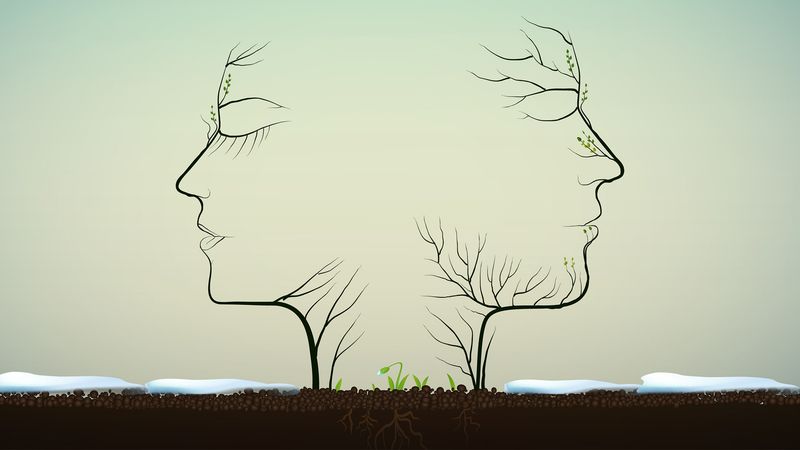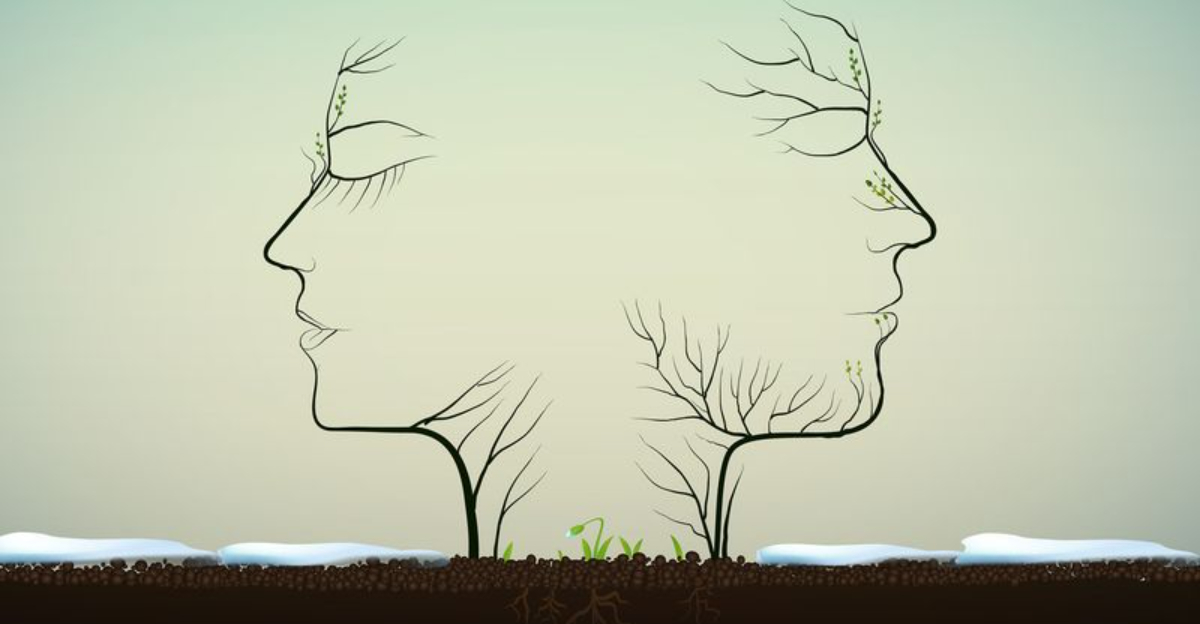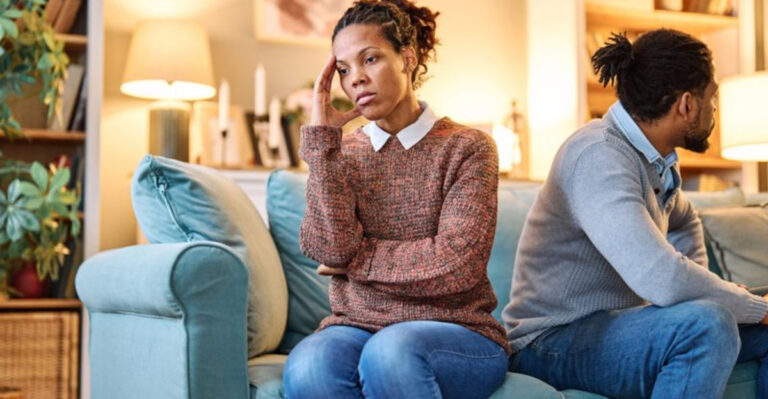18 Clues You’re In An Emotional Divorce—According To Psychologists
You know that feeling when you’re sitting right next to someone, but it’s like you’re worlds apart? Emotional divorce sneaks in quietly. It’s not about who left the toothpaste cap off or who’s late for dinner again—it’s the ache of not being seen in your own living room.
Psychologists have mapped out the subtle (and not-so-subtle) clues that tell you you’re skating on thin emotional ice. This isn’t about legal paperwork or ultimatums. It’s about waking up and realizing the connection you counted on has gone missing—sometimes for years.
Here are 18 brutally honest, deeply human signs you’re not just drifting, but already halfway gone, according to the experts.
1. Conversations Turn Transactional

Sometimes your only conversations are about the grocery list or whose turn it is to walk the dog? That shift, where talking feels like sending emails at work—efficient but empty—hits different. It’s not a fight, it’s not even cold silence. It’s paperwork with a human face.
If you find yourself dreading the sound of your partner’s voice because you know it’s just going to be about logistics, that’s a red flag. There used to be laughter, or at least a joke about the crappy coffee. Now, it’s just tasks. You’re living with a roommate who used to know your dreams.
This isn’t just routine. Psychologists say when emotional intimacy fades, partners stop sharing the small details that once kept them close. Emotional divorce doesn’t start in courtrooms—it starts at your breakfast table. It can feel polite, but underneath it’s lonely as heck.
2. Affection Feels Forced (Or Disappears)

Ever had a hug that felt like a handshake? That moment when a kiss on the cheek is just a habit, not a connection. You’re both going through the motions, but you remember what it was like when a touch was electric, not robotic.
Physical closeness is more than just routine. When the spark fades, you start to notice the space between you on the couch. Your body knows what your heart is trying not to admit: affection isn’t automatic anymore.
Loss of physical and emotional intimacy is a classic marker of emotional divorce. It’s not always a dramatic withdrawal. At times, it just trickles away, leaving a weird emptiness you can’t explain to your friends without sounding dramatic.
3. Your Fights Loop Like Bad TV Reruns

It’s those fights when you argue about the same thing for the tenth time. You know how it ends, and it’s never with real resolution. It’s like you hit play on the same argument—reheated, recycled, and just as pointless as last time.
These aren’t fiery showdowns that end with making up. They’re exhausting, unfinished business that piles up until you both avoid each other just to keep the peace. That silence after a fight is heavier than the fight itself.
Therapists say growing resentment and repeated conflict, with no attempt to understand or fix the core issues, signals emotional withdrawal. You’re not fighting for the relationship—you’re just fighting not to explode. That’s not a partnership. That’s two people sharing space and old wounds.
4. You Live Parallel Lives

Remember when you’d wait for each other to binge-watch that show, or at least share a meal? Now, it’s like you’re just passing each other in the hallway, each with your separate routines. You’ve become background noise in each other’s day.
You might tell yourself you’re just busy, but deep down you know this isn’t what you signed up for. It’s the ache of being alone together.
Emotional divorce creates two solo acts. You stop weaving your lives together. Instead, it’s separate calendars, separate dreams, and a growing sense you’re not even on the same team anymore.
5. Loneliness Sits Next To You

It hits different when there’s someone only an arm’s reach away. It’s not that you’re physically alone, it’s that you feel invisible in your own relationship.
You can’t remember the last time you felt understood or supported. You wonder if your needs even matter anymore.
According to therapists, chronic loneliness in a relationship is a top sign emotional connection is gone. It’s a heavy emptiness—the kind you can’t fix with a girl’s night out or another distraction. It lingers, quietly chipping away at your hope.
6. You Dodge The Tough Conversations

Do you ever rehearse a conversation in your head for days, only to never actually say it out loud? You worry it’ll start another argument, so you bury it instead. After a while, avoiding tough talks becomes your new normal.
Sure, the house stays quieter, but the silence is loaded. Every unspoken word builds a wall between you, brick by brick.
Avoiding conflict isn’t peace—it’s emotional avoidance. When you’re emotionally divorced, the cost of honesty just feels too high. You keep quiet, but inside you’re screaming for something to change.
7. Touch Is Missing In Action

Do you reach for your partner’s hand and pull back, because the gesture feels awkward now? Maybe you stopped even trying. A once-automatic touch turns into a rare event, almost like you’re afraid you’ll break the spell.
Physical affection isn’t about constant passion. It’s about the little things—hand squeezes, shoulder brushes, a quick hug in the hallway. When those vanish, the distance grows louder than any argument.
The absence of touch isn’t just about sex. It’s about how comfortable you feel being physically close, even in the smallest ways. When that comfort slips away, it’s a clue the emotional glue is gone too.
8. You Don’t Ask About Each Other’s Day—And Don’t Miss It

Remember when you’d ask, “How was your day?”—and actually want to hear the answer? Now, it barely crosses your mind. If it does, you already know you’ll get a shrug or a generic response, so why bother.
The details that used to make you smile or worry about each other fade away. You stop asking, and you stop missing the answers.
Psychologists point out that when curiosity ends, so does connection. Indifference replaces genuine interest, and your partner becomes just another part of the background. That’s not just routine—it’s the slow end of your relationship’s heart.
9. Tiny Grudges Grow Huge

This one is way more common than you think. It’s when you get irrationally annoyed at the way they chew, or how they never put the cap back on the toothpaste. Suddenly, every minor thing turns into a symbol of everything that’s wrong. Small annoyances pile up until they feel impossible to ignore.
You hold onto grudges, not because you care about the dishes, but because you feel unheard everywhere else. Resentment starts as a whisper, then grows until it’s the only thing you hear.
Therapists say resentment builds in the silence left by unmet needs. What starts as petty complaints is actually your heart protesting the distance, begging to be noticed, or at least acknowledged.
10. You Don’t React To Their Emotions

Do you ever see your partner cry, and feel… nothing? Or maybe they snap at you, and you don’t even flinch. Indifference is louder than anger.
You used to rush in with comfort, or at least worry. Now, their feelings are background noise you tune out without meaning to. It’s not cruelty—it’s exhaustion.
This is called emotional detachment. When you stop caring about each other’s highs and lows, you’re not just distant—you’re invisible to each other. That emptiness is a bigger warning sign than any argument ever was.
11. You Fantasize About Life Alone

You catch yourself lost in thoughts of a life without your partner—feeling more relief than guilt, am I right? Not just a fleeting wish for space, but vivid scenarios where you get the whole bed, make your own decisions, and feel genuinely lighter.
It isn’t about anger or even revenge. It’s about the hope of feeling whole again. You start building a future in your head that doesn’t include the person beside you.
These fantasies are a sign you’re emotionally checking out. You’re not running from a fight. You’re running toward the freedom you’ve been missing for far too long.
12. You Feel Stupid Bringing Up The Past

Have you ever tried to talk about an old hurt, only to get that “not this again” sigh? You start to feel foolish for even caring. You stop bringing up the past, not because you’ve healed, but because you’re tired of hitting a wall.
The stories that make you who you are—the fights, the tears, the inside jokes—become landmines. You tiptoe around them, pretending they don’t matter anymore.
Therapists say when the past feels off-limits, it’s not closure; it’s avoidance. You’re not moving forward—you’re burying yourself alive in silence. That’s how emotional divorce takes root.
13. Small Joys Aren’t Shared Anymore

Think back to when you’d run to share a funny meme or a tiny victory. Now, the moments that make you smile just bounce around inside your own head. You stop sharing the good stuff, because you know it’ll just fall flat.
Those little sparks that used to bring you closer become private moments. You celebrate alone, even when you’re in the same room.
Shared joy is the glue of emotional connection. When you stop letting each other in on the small wins, you lose the habit of being allies. That’s a loneliness nobody warns you about.
14. You’re Relieved When They’re Gone

Ever feel lighter the second they walk out the door? It’s not just needing alone time. It’s actual relief, like you can finally exhale.
You notice you laugh more, breathe easier, and maybe even play your favorite music again. Their absence feels better than their presence.
Psychologists say this relief isn’t selfish—it’s a warning sign. When being alone brings more comfort than being together, you’ve emotionally left already. Sometimes, “me time” is actually “I can finally be myself” time.
15. You Don’t Bother To Try Anymore

I bet, on occasion, you gave up mid-sentence because you know it won’t matter? You stop trying to fix things, or even explain how you feel. It’s just easier to let the silence win.
Your energy goes somewhere else—work, friends, scrolling on your phone. The relationship doesn’t get your best, or even your average. It gets your leftovers, if anything at all.
This is a sign of resignation, not acceptance. When both people stop showing up, emotional divorce isn’t just possible—it’s already happening. Indifference is louder than any slammed door.
16. You Hide Your True Self

You know when you bite your tongue so much it feels like a reflex? You keep parts of yourself hidden—your opinions, your laughter, even your weird quirks—because being fully seen feels risky now.
The safe space where you used to be your whole self shrinks. Now, you edit everything, calculating what will cause the least friction. Little by little, you disappear from your own life.
This robs you of authenticity. When you can’t show up as yourself, you stop showing up at all. It’s like living with a stranger—and sometimes, you’re the stranger.
17. Celebrations Feel Hollow

Blow out the candles, make a wish—and it’s like nobody’s really there. Birthdays, anniversaries, even “date nights”—they still happen, but they feel like going through the motions.
You exchange gifts and say thanks, but the meaning is lost. The anticipation and excitement of shared celebration is missing. It’s performance, not joy.
When milestones stop mattering, it’s not about forgetting dates. It’s about forgetting why you ever wanted to celebrate together in the first place.
18. You Feel Like You’re Lying To Everyone (Even Yourself)

Ever post a happy couple selfie and feel like you’re starring in a play? You say, “We’re fine,” but inside you know it’s not true. The mask you wear starts to feel permanent.
You fake it for friends, family, maybe even the kids. But pretending takes work. Eventually, you start lying to yourself just to get through the day.
Psychologists call this living out-of-sync with your own reality. When the disconnect between your public face and private life grows too wide, emotional divorce isn’t a what-if. It’s already here—quiet, heavy, and real.







